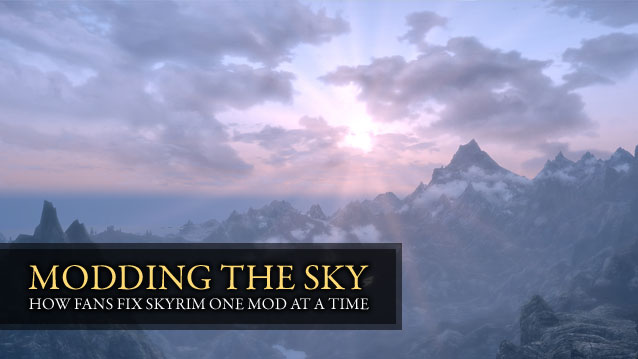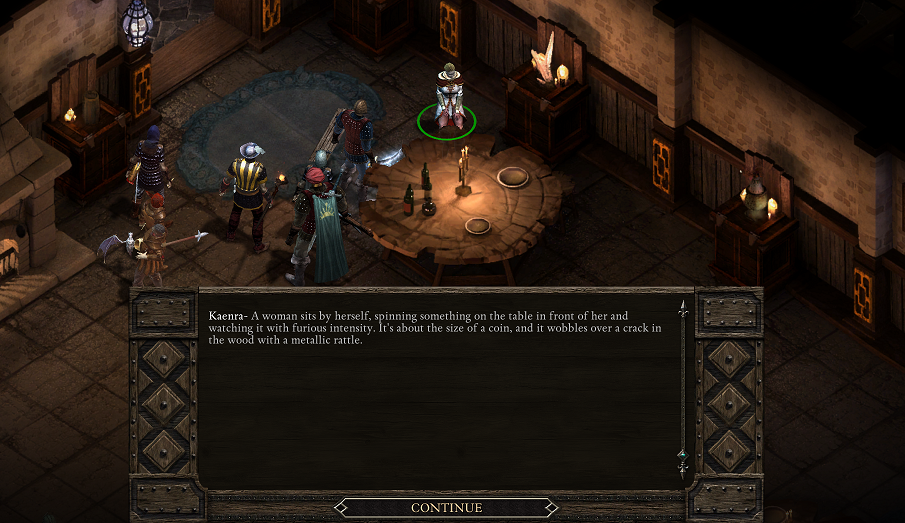


Bethesda’s gargantuan super RPG Skyrim, fifth installment in the Elder Scrolls series, is a very good game—and a very big one, too. A staggeringly huge project. Like almost all other games Bethesda ever put out, it was released with an equally staggering amount of bugs and some shortcomings. Thankfully, not just since the release of the Creation Kit—the official modding tools—there have been a large number of fans providing the game with fixes and improvements, from graphics to gameplay.
Bethesda games are rarely complete without this. They are usually best when played with a big number of mods applied.Bethesda games are rarely complete without this. They are usually best when played with a big number of mods applied. While some may scoff at those that alter too much, meddle too heavily with the artistic intention, it can’t be denied that mods to a project like this provide repairs to a game, whose developers are busy enough themselves fixing the technical side of things. The modders provide fixes the players demand more quickly than any developer could. Be it an alternative inventory system to the vanilla one that is just not fun to use at all, or be it “just” a set of graphical improvements.
Mods have long since become essential to Bethesda’s games. Mind you, I’m not a hardcore PC gamer. But playing Bethesda games on anything that doesn’t have extensive mod support means missing out on some truly awesome and oftentimes really game-changing improvements.
In a way, and I’m not blaming Bethesda for anything here, the mod scene has become sort of an giant crowdsourcing project to quickly deliver peer reviewed fixes for games too big to be really perfect, chipping at perfection one addition at a time.
And then there is the Steam Workshop. With Valve giving modders the chance to easily deliver their creations to the players, while significantly lowering the entry barrier for players maybe reluctant to try out modding, this is a huge step in the right direction.
The Workshop easily presents all available mods in an app-store like manner and usability, lets the player ‘subscribe’ to any desired mods, thereby including any updates automatically. It’s very convenient and easy to use.
There have of course been other instances over videogame history where fans sprang in to correct mistakes of the devs. Most prominent example would be Vampire: The Masquerade - Bloodlines, which came to the market in an almost unfinished state. When developer Troika shut down shortly after the game’s release, the fans jumped into the fray, and have been delivering update after update, patch after patch to fix this broken gem.
It’s a vital addition to videogames, and not just a cheap source for new content, but oftentimes a force that fans can rely on when a developer clearly got something wrong but won’t or just can’t fix it in time.There is also the huge and very active STALKER modding community, that is still digging around in the original 2007 today, unlocking and uncovering abandoned designs and ideas, implementing them into the final game.
The modding scene in general is vast and diverse. It’s a vital addition to videogames, and not just a cheap source for new content, but oftentimes a force that fans can rely on when a developer clearly got something wrong but won’t or just can’t fix it in time. See Skyrim’s broken inventory interface. People even went so far as to include actual huge NPC vs. NPC battles into the game, which while featuring a bloody civil war as backdrop is all but devoid of any actual big clashes between the two warring factions.
It’s especially those mods, the ones that add things to the table a number of players—note that I am not saying “fans” here—have duly noted as dysfunctional or missing, that make modding such an essential part of the overall experience, that sometimes can even open up a game’s full, true potential.




 The Elder Scrolls Online: Top 10 Must-Have Features
The Elder Scrolls Online: Top 10 Must-Have Features Destiny Guide: How to Complete The Vault of Glass on Hard
Destiny Guide: How to Complete The Vault of Glass on Hard Destiny (PC) Raid The Transparent Chamber
Destiny (PC) Raid The Transparent Chamber Pillars of Eternity Guide: How to Complete the His Old Self Quest
Pillars of Eternity Guide: How to Complete the His Old Self Quest Top 10 Best iPhone 4S Games
Top 10 Best iPhone 4S Games